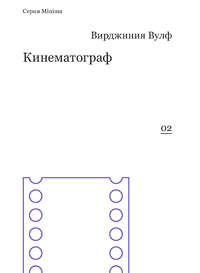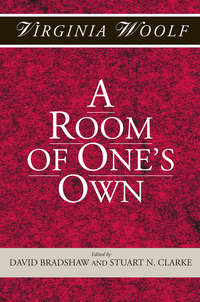 полная версия
полная версияNight and Day
He had made no effort to tide over the discomforts of her introduction, and now, engaged in argument with his brother, apparently forgot her presence. She must have counted upon his support more than she realized, for this indifference, emphasized, as it was, by the insignificant commonplace of his surroundings, awoke her, not only to that ugliness, but to her own folly. She thought of one scene after another in a few seconds, with that shudder which is almost a blush. She had believed him when he spoke of friendship. She had believed in a spiritual light burning steadily and steadfastly behind the erratic disorder and incoherence of life. The light was now gone out, suddenly, as if a sponge had blotted it. The litter of the table and the tedious but exacting conversation of Mrs. Denham remained: they struck, indeed, upon a mind bereft of all defences, and, keenly conscious of the degradation which is the result of strife whether victorious or not, she thought gloomily of her loneliness, of life’s futility, of the barren prose of reality, of William Rodney, of her mother, and the unfinished book.
Her answers to Mrs. Denham were perfunctory to the verge of rudeness, and to Ralph, who watched her narrowly, she seemed further away than was compatible with her physical closeness. He glanced at her, and ground out further steps in his argument, determined that no folly should remain when this experience was over. Next moment, a silence, sudden and complete, descended upon them all. The silence of all these people round the untidy table was enormous and hideous; something horrible seemed about to burst from it, but they endured it obstinately. A second later the door opened and there was a stir of relief; cries of “Hullo, Joan! There’s nothing left for you to eat,” broke up the oppressive concentration of so many eyes upon the table-cloth, and set the waters of family life dashing in brisk little waves again. It was obvious that Joan had some mysterious and beneficent power upon her family. She went up to Katharine as if she had heard of her, and was very glad to see her at last. She explained that she had been visiting an uncle who was ill, and that had kept her. No, she hadn’t had any tea, but a slice of bread would do. Some one handed up a hot cake, which had been keeping warm in the fender; she sat down by her mother’s side, Mrs. Denham’s anxieties seemed to relax, and every one began eating and drinking, as if tea had begun over again. Hester voluntarily explained to Katharine that she was reading to pass some examination, because she wanted more than anything in the whole world to go to Newnham.
“Now, just let me hear you decline ‘amo’ – I love,” Johnnie demanded.
“No, Johnnie, no Greek at meal-times,” said Joan, overhearing him instantly. “She’s up at all hours of the night over her books, Miss Hilbery, and I’m sure that’s not the way to pass examinations,” she went on, smiling at Katharine, with the worried humorous smile of the elder sister whose younger brothers and sisters have become almost like children of her own.
“Joan, you don’t really think that ‘amo’ is Greek?” Ralph asked.
“Did I say Greek? Well, never mind. No dead languages at tea-time. My dear boy, don’t trouble to make me any toast – ”
“Or if you do, surely there’s the toasting-fork somewhere?” said Mrs. Denham, still cherishing the belief that the bread-knife could be spoilt. “Do one of you ring and ask for one,” she said, without any conviction that she would be obeyed. “But is Ann coming to be with Uncle Joseph?” she continued. “If so, surely they had better send Amy to us – ” and in the mysterious delight of learning further details of these arrangements, and suggesting more sensible plans of her own, which, from the aggrieved way in which she spoke, she did not seem to expect any one to adopt, Mrs. Denham completely forgot the presence of a well-dressed visitor, who had to be informed about the amenities of Highgate. As soon as Joan had taken her seat, an argument had sprung up on either side of Katharine, as to whether the Salvation Army has any right to play hymns at street corners on Sunday mornings, thereby making it impossible for James to have his sleep out, and tampering with the rights of individual liberty.
“You see, James likes to lie in bed and sleep like a hog,” said Johnnie, explaining himself to Katharine, whereupon James fired up and, making her his goal, also exclaimed:
“Because Sundays are my one chance in the week of having my sleep out. Johnnie messes with stinking chemicals in the pantry – ”
They appealed to her, and she forgot her cake and began to laugh and talk and argue with sudden animation. The large family seemed to her so warm and various that she forgot to censure them for their taste in pottery. But the personal question between James and Johnnie merged into some argument already, apparently, debated, so that the parts had been distributed among the family, in which Ralph took the lead; and Katharine found herself opposed to him and the champion of Johnnie’s cause, who, it appeared, always lost his head and got excited in argument with Ralph.
“Yes, yes, that’s what I mean. She’s got it right,” he exclaimed, after Katharine had restated his case, and made it more precise. The debate was left almost solely to Katharine and Ralph. They looked into each other’s eyes fixedly, like wrestlers trying to see what movement is coming next, and while Ralph spoke, Katharine bit her lower lip, and was always ready with her next point as soon as he had done. They were very well matched, and held the opposite views.
But at the most exciting stage of the argument, for no reason that Katharine could see, all chairs were pushed back, and one after another the Denham family got up and went out of the door, as if a bell had summoned them. She was not used to the clockwork regulations of a large family. She hesitated in what she was saying, and rose. Mrs. Denham and Joan had drawn together and stood by the fireplace, slightly raising their skirts above their ankles, and discussing something which had an air of being very serious and very private. They appeared to have forgotten her presence among them. Ralph stood holding the door open for her.
“Won’t you come up to my room?” he said. And Katharine, glancing back at Joan, who smiled at her in a preoccupied way, followed Ralph upstairs. She was thinking of their argument, and when, after the long climb, he opened his door, she began at once.
“The question is, then, at what point is it right for the individual to assert his will against the will of the State.”
For some time they continued the argument, and then the intervals between one statement and the next became longer and longer, and they spoke more speculatively and less pugnaciously, and at last fell silent. Katharine went over the argument in her mind, remembering how, now and then, it had been set conspicuously on the right course by some remark offered either by James or by Johnnie.
“Your brothers are very clever,” she said. “I suppose you’re in the habit of arguing?”
“James and Johnnie will go on like that for hours,” Ralph replied. “So will Hester, if you start her upon Elizabethan dramatists.”
“And the little girl with the pigtail?”
“Molly? She’s only ten. But they’re always arguing among themselves.”
He was immensely pleased by Katharine’s praise of his brothers and sisters. He would have liked to go on telling her about them, but he checked himself.
“I see that it must be difficult to leave them,” Katharine continued. His deep pride in his family was more evident to him, at that moment, than ever before, and the idea of living alone in a cottage was ridiculous. All that brotherhood and sisterhood, and a common childhood in a common past mean, all the stability, the unambitious comradeship, and tacit understanding of family life at its best, came to his mind, and he thought of them as a company, of which he was the leader, bound on a difficult, dreary, but glorious voyage. And it was Katharine who had opened his eyes to this, he thought.
A little dry chirp from the corner of the room now roused her attention.
“My tame rook,” he explained briefly. “A cat had bitten one of its legs.” She looked at the rook, and her eyes went from one object to another.
“You sit here and read?” she said, her eyes resting upon his books. He said that he was in the habit of working there at night.
“The great advantage of Highgate is the view over London. At night the view from my window is splendid.” He was extremely anxious that she should appreciate his view, and she rose to see what was to be seen. It was already dark enough for the turbulent haze to be yellow with the light of street lamps, and she tried to determine the quarters of the city beneath her. The sight of her gazing from his window gave him a peculiar satisfaction. When she turned, at length, he was still sitting motionless in his chair.
“It must be late,” she said. “I must be going.” She settled upon the arm of the chair irresolutely, thinking that she had no wish to go home. William would be there, and he would find some way of making things unpleasant for her, and the memory of their quarrel came back to her. She had noticed Ralph’s coldness, too. She looked at him, and from his fixed stare she thought that he must be working out some theory, some argument. He had thought, perhaps, of some fresh point in his position, as to the bounds of personal liberty. She waited, silently, thinking about liberty.
“You’ve won again,” he said at last, without moving.
“I’ve won?” she repeated, thinking of the argument.
“I wish to God I hadn’t asked you here,” he burst out.
“What do you mean?”
“When you’re here, it’s different – I’m happy. You’ve only to walk to the window – you’ve only to talk about liberty. When I saw you down there among them all – ” He stopped short.
“You thought how ordinary I was.”
“I tried to think so. But I thought you more wonderful than ever.”
An immense relief, and a reluctance to enjoy that relief, conflicted in her heart.
She slid down into the chair.
“I thought you disliked me,” she said.
“God knows I tried,” he replied. “I’ve done my best to see you as you are, without any of this damned romantic nonsense. That was why I asked you here, and it’s increased my folly. When you’re gone I shall look out of that window and think of you. I shall waste the whole evening thinking of you. I shall waste my whole life, I believe.”
He spoke with such vehemence that her relief disappeared; she frowned; and her tone changed to one almost of severity.
“This is what I foretold. We shall gain nothing but unhappiness. Look at me, Ralph.” He looked at her. “I assure you that I’m far more ordinary than I appear. Beauty means nothing whatever. In fact, the most beautiful women are generally the most stupid. I’m not that, but I’m a matter-of-fact, prosaic, rather ordinary character; I order the dinner, I pay the bills, I do the accounts, I wind up the clock, and I never look at a book.”
“You forget – ” he began, but she would not let him speak.
“You come and see me among flowers and pictures, and think me mysterious, romantic, and all the rest of it. Being yourself very inexperienced and very emotional, you go home and invent a story about me, and now you can’t separate me from the person you’ve imagined me to be. You call that, I suppose, being in love; as a matter of fact it’s being in delusion. All romantic people are the same,” she added. “My mother spends her life in making stories about the people she’s fond of. But I won’t have you do it about me, if I can help it.”
“You can’t help it,” he said.
“I warn you it’s the source of all evil.”
“And of all good,” he added.
“You’ll find out that I’m not what you think me.”
“Perhaps. But I shall gain more than I lose.”
“If such gain’s worth having.”
They were silent for a space.
“That may be what we have to face,” he said. “There may be nothing else. Nothing but what we imagine.”
“The reason of our loneliness,” she mused, and they were silent for a time.
“When are you to be married?” he asked abruptly, with a change of tone.
“Not till September, I think. It’s been put off.”
“You won’t be lonely then,” he said. “According to what people say, marriage is a very queer business. They say it’s different from anything else. It may be true. I’ve known one or two cases where it seems to be true.” He hoped that she would go on with the subject. But she made no reply. He had done his best to master himself, and his voice was sufficiently indifferent, but her silence tormented him. She would never speak to him of Rodney of her own accord, and her reserve left a whole continent of her soul in darkness.
“It may be put off even longer than that,” she said, as if by an afterthought. “Some one in the office is ill, and William has to take his place. We may put it off for some time in fact.”
“That’s rather hard on him, isn’t it?” Ralph asked.
“He has his work,” she replied. “He has lots of things that interest him… I know I’ve been to that place,” she broke off, pointing to a photograph. “But I can’t remember where it is – oh, of course it’s Oxford. Now, what about your cottage?”
“I’m not going to take it.”
“How you change your mind!” she smiled.
“It’s not that,” he said impatiently. “It’s that I want to be where I can see you.”
“Our compact is going to hold in spite of all I’ve said?” she asked.
“For ever, so far as I’m concerned,” he replied.
“You’re going to go on dreaming and imagining and making up stories about me as you walk along the street, and pretending that we’re riding in a forest, or landing on an island – ”
“No. I shall think of you ordering dinner, paying bills, doing the accounts, showing old ladies the relics – ”
“That’s better,” she said. “You can think of me to-morrow morning looking up dates in the ‘Dictionary of National Biography.’”
“And forgetting your purse,” Ralph added.
At this she smiled, but in another moment her smile faded, either because of his words or of the way in which he spoke them. She was capable of forgetting things. He saw that. But what more did he see? Was he not looking at something she had never shown to anybody? Was it not something so profound that the notion of his seeing it almost shocked her? Her smile faded, and for a moment she seemed upon the point of speaking, but looking at him in silence, with a look that seemed to ask what she could not put into words, she turned and bade him good night.
CHAPTER XXVIII
Like a strain of music, the effect of Katharine’s presence slowly died from the room in which Ralph sat alone. The music had ceased in the rapture of its melody. He strained to catch the faintest lingering echoes; for a moment the memory lulled him into peace; but soon it failed, and he paced the room so hungry for the sound to come again that he was conscious of no other desire left in life. She had gone without speaking; abruptly a chasm had been cut in his course, down which the tide of his being plunged in disorder; fell upon rocks; flung itself to destruction. The distress had an effect of physical ruin and disaster. He trembled; he was white; he felt exhausted, as if by a great physical effort. He sank at last into a chair standing opposite her empty one, and marked, mechanically, with his eye upon the clock, how she went farther and farther from him, was home now, and now, doubtless, again with Rodney. But it was long before he could realize these facts; the immense desire for her presence churned his senses into foam, into froth, into a haze of emotion that removed all facts from his grasp, and gave him a strange sense of distance, even from the material shapes of wall and window by which he was surrounded. The prospect of the future, now that the strength of his passion was revealed to him, appalled him.
The marriage would take place in September, she had said; that allowed him, then, six full months in which to undergo these terrible extremes of emotion. Six months of torture, and after that the silence of the grave, the isolation of the insane, the exile of the damned; at best, a life from which the chief good was knowingly and for ever excluded. An impartial judge might have assured him that his chief hope of recovery lay in this mystic temper, which identified a living woman with much that no human beings long possess in the eyes of each other; she would pass, and the desire for her vanish, but his belief in what she stood for, detached from her, would remain. This line of thought offered, perhaps, some respite, and possessed of a brain that had its station considerably above the tumult of the senses, he tried to reduce the vague and wandering incoherency of his emotions to order. The sense of self-preservation was strong in him, and Katharine herself had strangely revived it by convincing him that his family deserved and needed all his strength. She was right, and for their sake, if not for his own, this passion, which could bear no fruit, must be cut off, uprooted, shown to be as visionary and baseless as she had maintained. The best way of achieving this was not to run away from her, but to face her, and having steeped himself in her qualities, to convince his reason that they were, as she assured him, not those that he imagined. She was a practical woman, a domestic wife for an inferior poet, endowed with romantic beauty by some freak of unintelligent Nature. No doubt her beauty itself would not stand examination. He had the means of settling this point at least. He possessed a book of photographs from the Greek statues; the head of a goddess, if the lower part were concealed, had often given him the ecstasy of being in Katharine’s presence. He took it down from the shelf and found the picture. To this he added a note from her, bidding him meet her at the Zoo. He had a flower which he had picked at Kew to teach her botany. Such were his relics. He placed them before him, and set himself to visualize her so clearly that no deception or delusion was possible. In a second he could see her, with the sun slanting across her dress, coming towards him down the green walk at Kew. He made her sit upon the seat beside him. He heard her voice, so low and yet so decided in its tone; she spoke reasonably of indifferent matters. He could see her faults, and analyze her virtues. His pulse became quieter, and his brain increased in clarity. This time she could not escape him. The illusion of her presence became more and more complete. They seemed to pass in and out of each other’s minds, questioning and answering. The utmost fullness of communion seemed to be theirs. Thus united, he felt himself raised to an eminence, exalted, and filled with a power of achievement such as he had never known in singleness. Once more he told over conscientiously her faults, both of face and character; they were clearly known to him; but they merged themselves in the flawless union that was born of their association. They surveyed life to its uttermost limits. How deep it was when looked at from this height! How sublime! How the commonest things moved him almost to tears! Thus, he forgot the inevitable limitations; he forgot her absence, he thought it of no account whether she married him or another; nothing mattered, save that she should exist, and that he should love her. Some words of these reflections were uttered aloud, and it happened that among them were the words, “I love her.” It was the first time that he had used the word “love” to describe his feeling; madness, romance, hallucination – he had called it by these names before; but having, apparently by accident, stumbled upon the word “love,” he repeated it again and again with a sense of revelation.
“But I’m in love with you!” he exclaimed, with something like dismay. He leant against the window-sill, looking over the city as she had looked. Everything had become miraculously different and completely distinct. His feelings were justified and needed no further explanation. But he must impart them to some one, because his discovery was so important that it concerned other people too. Shutting the book of Greek photographs, and hiding his relics, he ran downstairs, snatched his coat, and passed out of doors.
The lamps were being lit, but the streets were dark enough and empty enough to let him walk his fastest, and to talk aloud as he walked. He had no doubt where he was going. He was going to find Mary Datchet. The desire to share what he felt, with some one who understood it, was so imperious that he did not question it. He was soon in her street. He ran up the stairs leading to her flat two steps at a time, and it never crossed his mind that she might not be at home. As he rang her bell, he seemed to himself to be announcing the presence of something wonderful that was separate from himself, and gave him power and authority over all other people. Mary came to the door after a moment’s pause. He was perfectly silent, and in the dusk his face looked completely white. He followed her into her room.
“Do you know each other?” she said, to his extreme surprise, for he had counted on finding her alone. A young man rose, and said that he knew Ralph by sight.
“We were just going through some papers,” said Mary. “Mr. Basnett has to help me, because I don’t know much about my work yet. It’s the new society,” she explained. “I’m the secretary. I’m no longer at Russell Square.”
The voice in which she gave this information was so constrained as to sound almost harsh.
“What are your aims?” said Ralph. He looked neither at Mary nor at Mr. Basnett. Mr. Basnett thought he had seldom seen a more disagreeable or formidable man than this friend of Mary’s, this sarcastic-looking, white-faced Mr. Denham, who seemed to demand, as if by right, an account of their proposals, and to criticize them before he had heard them. Nevertheless, he explained his projects as clearly as he could, and knew that he wished Mr. Denham to think well of them.
“I see,” said Ralph, when he had done. “D’you know, Mary,” he suddenly remarked, “I believe I’m in for a cold. Have you any quinine?” The look which he cast at her frightened her; it expressed mutely, perhaps without his own consciousness, something deep, wild, and passionate. She left the room at once. Her heart beat fast at the knowledge of Ralph’s presence; but it beat with pain, and with an extraordinary fear. She stood listening for a moment to the voices in the next room.
“Of course, I agree with you,” she heard Ralph say, in this strange voice, to Mr. Basnett. “But there’s more that might be done. Have you seen Judson, for instance? You should make a point of getting him.”
Mary returned with the quinine.
“Judson’s address?” Mr. Basnett inquired, pulling out his notebook and preparing to write. For twenty minutes, perhaps, he wrote down names, addresses, and other suggestions that Ralph dictated to him. Then, when Ralph fell silent, Mr. Basnett felt that his presence was not desired, and thanking Ralph for his help, with a sense that he was very young and ignorant compared with him, he said good-bye.
“Mary,” said Ralph, directly Mr. Basnett had shut the door and they were alone together. “Mary,” he repeated. But the old difficulty of speaking to Mary without reserve prevented him from continuing. His desire to proclaim his love for Katharine was still strong in him, but he had felt, directly he saw Mary, that he could not share it with her. The feeling increased as he sat talking to Mr. Basnett. And yet all the time he was thinking of Katharine, and marveling at his love. The tone in which he spoke Mary’s name was harsh.
“What is it, Ralph?” she asked, startled by his tone. She looked at him anxiously, and her little frown showed that she was trying painfully to understand him, and was puzzled. He could feel her groping for his meaning, and he was annoyed with her, and thought how he had always found her slow, painstaking, and clumsy. He had behaved badly to her, too, which made his irritation the more acute. Without waiting for him to answer, she rose as if his answer were indifferent to her, and began to put in order some papers that Mr. Basnett had left on the table. She hummed a scrap of a tune under her breath, and moved about the room as if she were occupied in making things tidy, and had no other concern.
“You’ll stay and dine?” she said casually, returning to her seat.
“No,” Ralph replied. She did not press him further. They sat side by side without speaking, and Mary reached her hand for her work basket, and took out her sewing and threaded a needle.









